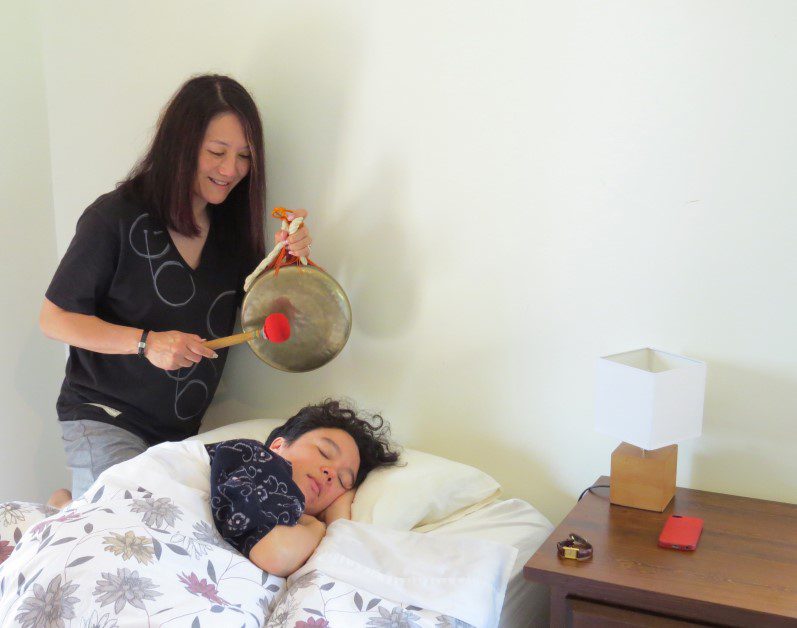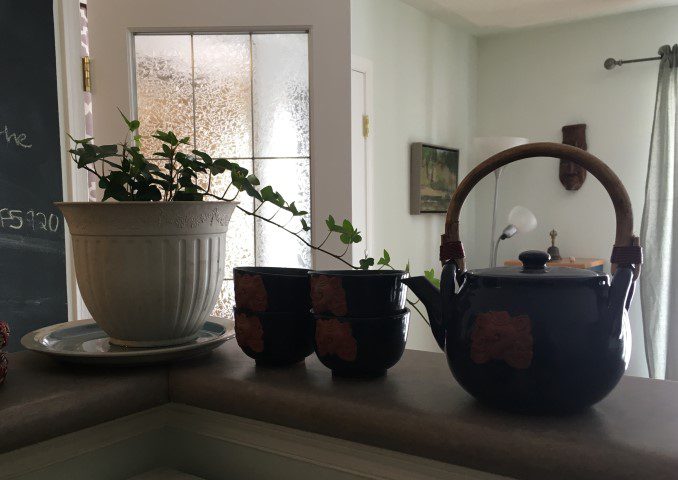Tips for Mindfulness Around Food, Phones, and Sex
Tips for mindfulness from residents and teachers at a meditation retreat center! Ooh, where to start?
When meditating, we aim to pay great attention to what’s going on. Bare attention to what’s going on in the body, the senses, and the mind.
When thinking of tips for mindfulness, this is where we’re coming from. The goal is to be paying attention all of the time, to be as awake and alive as we can, all of the time. And mindfulness is the most commonly known modern word for talking about this. In fact, this modern definition of the word mindfulness barely touches the surface of its depth in Buddhist teachings.
Mindfulness is Cumulative
The meditation cushion is like going to the gym, it’s intensive training so our minds can be in good shape off the cushion. Meditation, then, is an important training and conditioning that we do because we want agile minds, because we want to maintain space throughout the day to stay in contact with a sense of calm and perspective. Mindfulness is cumulative.
How can we maintain our ability to stay aware and carry mindfulness throughout the day, when so many things take our attention and we mostly run on automatic pilot?
Just be mindful all day, then…
The thing is, it’s not that easy. We go into habit or automatic pilot so easily.
On our last creative weekend, we asked our team here to reflect and offer some tips for mindfulness in different situations. We have put together some mindfulness exercises and contemplations for you to try.
Living in an intentional, conscious community certainly ups your mindfulness game. These creative weekends with our conscious community are something you would join if you did our three month intensive program.
In this first tips for mindfulness blog from that weekend, here are some reflections from Clear Sky resident Cara Conroy Low.

1) Tips for Mindfulness in the Kitchen – Patterns
Be mindful of your habits in the kitchen and dining room
I have lots of food-related tips for mindfulness.
- When it comes to menu planning and shopping for your meals, what do you choose?
- Are you going to the same foods over and over through blind habit?
- Are you exhausted from work and seeing food preparation as a chore?
- Watch your mind and feelings when it comes to picking your recipes, ingredients and flavours.
- Can you change things up?
- Experiment with new styles of food.
- See where you cling to needing food to be a certain way.
I found that I can get lazy with food, especially when living alone and feeling tired at the end of the day. And that doesn’t promote mindfulness or exploration. I would tend to cook simple stir-fries, over and over. Food became a bit boring, not like a festive celebration of life and the senses.
One thing that helped my mindfulness with food was to eat more in conscious community. Eight of my meditation friends and I would get together and cook for each other on different nights of the week. We’d come up with exciting new and elaborate recipes, and enjoy each others’ styles and new approaches to food. It also meant we each only had to cook once per week!
Choosing to be part of an intentional community, I became much more mindful and aware of my habitual patterns around food, and how much better new recipes felt.

2) Tips for Mindfulness with Your Cellphone
Be mindful of (watch) the impulse to pick up your smartphone, check your messages, go on Facebook, read the news
- Can you trace back the urge in the body – in what situations do you go on your phone?
- Look closely. How does that feel in the body? Mindfulness of the body is the basis of good awareness.
- Are you using your phone when you’re with others, say your partner?
- Do you use your phone as you’re going to sleep, or when you wake up?
- Do you feel withdrawal when you put your phone away?
There is a syndrome called Nomophobia, from “NO MObile PHOne phoBIA.”
When you’re away from your phone or you put it away, do you notice anything in the body or emotional state? That’s okay. There’s nothing to fix.
If you can let those feelings move through, watch them without reacting, even when they are uncomfortable, you will gradually reduce your addiction and Nomophobia – like anything else when you use bare attention.
From personal experience, I’m shocked at how my body and mind is ever more wired into smartphone use. I didn’t own a smartphone until about 2012 and I’ve experienced ever increasing use since then. I notice that I’ll reach for my smartphone whenever there’s a pause, or gap in activity. Or even as a way to break up activity and disrupt my chain of thought.
I’m aware I’m somewhat addicted to using my phone, browsing the internet, checking the news and facebook. And, I try to practice awareness of what my body feels when I want to reach for my phone, before I actually reach for it.
I can simply say, it feels like craving. An ‘I want’ feeling that moves into my arms, like an irritating itch. Usually, I don’t notice the irritating itch before it has already moved into action and I’ve picked up my phone. Why am I irritated though? What is that low grade anxiety that the cellphone is filling to distract me?
More and more, I’m able to notice that I’m filling the void with my phone at work, with my partner etc. It becomes a conscious act of mindfulness to know I’m doing that, and an act of will to put down the phone, turn to my partner and share a simple moment of just being, together, electronics free.
It helps living in conscious community here at our meditation center in BC, Canada. I’m of course less likely to look at my phone during meals and during other conscious community activities. Although I don’t attend every meditation retreat the center runs, I’m even less likely to be on my phone during one of them. Plus, we’ll eat mindfully in silence.

3) Tips for Mindfulness of Sex
We’re sexual creatures, so how mindful are we when it comes to sex?
You perhaps didn’t expect to find this among tips for mindfulness. Yet, to be mindful we can’t leave out any part of our activities. Sexuality is a huge area of exploration, an area of our lives where we can be mindful of all sorts of habit patterns.
In fact, one of our meditation retreat center’s residents offers coaching around sex and relationships. Money, too, is not out of bounds, and one of our associate teachers is a certified money coach and can offer tips for mindfulness of your relationship with money.
There are some great questions we can use to explore sex as part of a mindfulness practice:
- Are you aware of your physical and emotional state before, during, and after sex?
- What patterns around sexuality do you seem to replay over and over again, either with your partner, on the dating scene, or as a single person?
- Do you avoid sex?
- Are you addicted to sex?
Some of us might ‘shut down’ during sex, but show up fully at work. Some of us might really show up for sex yet shut down in the rest of our life. This is a huge and complex topic and area for mindful growth. And again, there’s nothing to fix. We’re just witnessing. So simply starting with awareness of your mind, emotions, and body in the context of sex will be a rich and insightful mindfulness practice.
Personally speaking, I’ve found sex to be a goldmine for awareness practice. While I felt confident at work or in daily life, when it came to sexuality I began noticing fear arise, or a tuning out / numbing / shutting down in my mind and body part way through a sexual experience. At some point it became too intense, too visceral, too vulnerable, and I would shut down, go into my head and feel uncomfortable.
It certainly wasn’t the blissful Hollywood version of sex I’d seen on TV.
I knew I had to become more mindful of what was going on in the present moment – to be aware exactly of what was happening in my mind and body, and acknowledging those feelings and sensations – completely owning and accepting and allowing them. Sharing and communicating with my partner about what I was feeling also helped make those feelings really clear and less secretive or ‘bad’.
The simple awareness of ‘I’m shutting down’ helped move it into a choice, ‘I can be here’ now. Sex transformed from a ‘tuning out’ experience, to a ‘tuning in’ experience, through the simple act of bringing mindfulness into it.
And this is true of any experience.
A final tip for mindfulness, then: tune in instead of tuning out.
Edited by Andrew Rogers
Make your mindfulness practice more sustainable with our online courses including Integrating Mindfulness.


